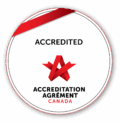Let’s face it, change is inevitable. They say the only constant in life is change. Transitions in life can be due to many reasons. For example, it can be a change related to your career, home and family life, health or financial situation. When we are dealing with life-changing events, even if they are not sudden, we tend to let our self-care routine drop to the bottom of the priority ladder. Things like dental appointments, eye exams or massage therapy can become overwhelming on both your time and wallet.
Changes to your health can create a time management challenge. Your regular self-care routine and maintenance appointments may suddenly get pushed aside to make time for extra appointments or meetings that you need to attend. Or, money can become a challenge. Also, you may no longer have access to the same health benefits that support your self-care regimen.
Why Are Preventative Self-Care Routines Important?
Frequent maintenance can bring to light small issues that can be resolved early, and generally for a smaller expense in the long run. As a dental hygienist, we focus on prevention. At your dental hygiene appointments, be sure to find out the most effective things you can do for yourself to prevent the big dental problems. Although regular maintenance can seem pricey at a few hundred dollars per year, it brings small problems to light. And you want to find out about the small problems before they become big problems. Because big dental problems cost big dollars!
How Can I Maintain My Self-Care Routine Through Life Changes?
Don’t fret! A little planning can go a long way. In situations where you no longer have health benefits, regardless of if it is because of a job change, job loss or retirement, a conversation with your financial planner can be of help. If you know that there are certain health and wellness services you would like to maintain, a financial advisor can help you fund those services despite the changes that life brings.
You have options! Health care providers are continually adapting their practice models to allow for clients’ needs. For example, mobile health and wellness providers offer convenient care options that are time-saving solutions. These services often add increased comfort when they are provided in the familiar environment of the client’s home. Also, most mobile care providers strive to keep services affordable so that cost is not a barrier to care.
Dental care can be one of the self-care efforts that slides down on the priority ladder. As a dental professional, we encourage you to have a frank discussion with your dental team. This includes the dentist, the dental hygienist and the reception staff. Let your dental team know that you will be having a life change that will present challenges. If you have a long-standing and good relationship with your dental team, it is likely that they will want to help where they can and will want to look after your needs in the long term.
3 Ways Your Dentist Can Help With Your Routine
If your life changes mean that your schedule becomes much busier, use time management methods. Schedule appointments well in advance so the time slots that are most convenient to your schedule are available for booking.
Ask your dentist and dental hygienist to create a proactive treatment plan for the procedures that are the most essential considering your dental history. This will give you the best “bang for your buck” by preventing the most likely issues. Also, by having a plan, you will know in advance what procedures are coming up so you can plan your budget accordingly.
We can agree that when it comes to your overall health, prevention is key. Keep your self-care routine at or near the top of your priority ladder through any changes. Any effort you can make to look after yourself and your family will work in your favour in the long run. Remember to eat healthily, exercise often… and, of course, floss regularly!
If you want help with how to keep regular dental care a part of your routine, contact Access Dental Hygiene Services to see how to simplify your dental care.





